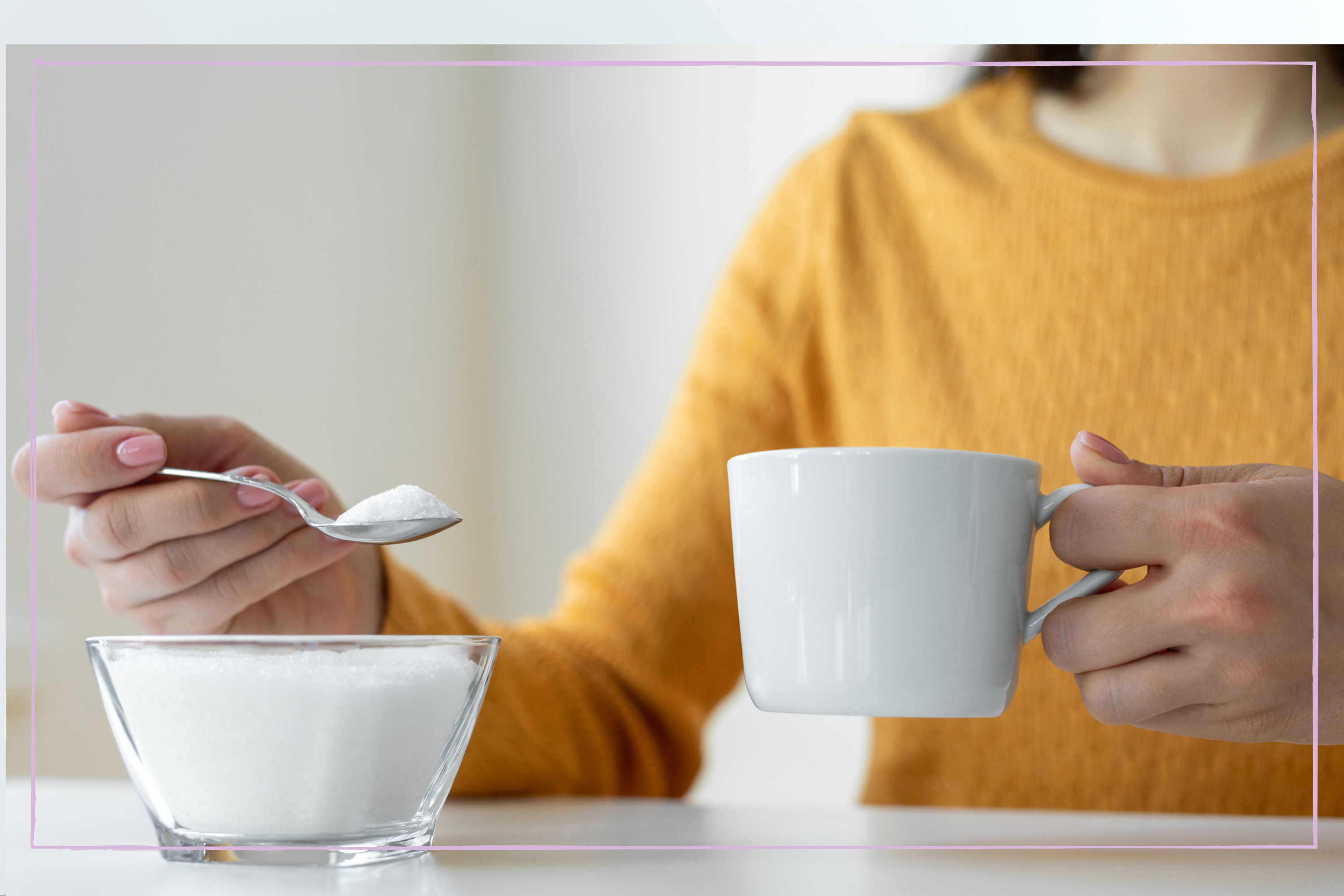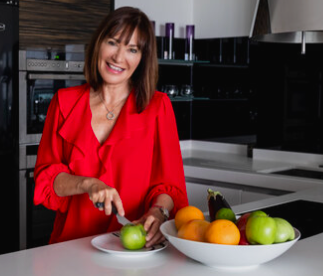How to quit sugar: 13 expert tips and methods to quit for good
Nutritionists explain how much sugar is too much - and how to control of your intake


It’s hard to know how to quit sugar, and to be fully aware of how much we’re consuming. But the truth is, in excess, the added sugar in our food and drink is harmful to us.
Eating too much sugar can have a big impact on our health. Added sugar (sugar that is added to food rather than occurring naturally) increases inflammation in the body. It causes spikes in our blood sugar and raises the risk of numerous health conditions, including type 2 diabetes, fatty liver disease, heart disease and obesity. Sugar is harmful because it also provides empty calories – that's energy with little or no nutritional value.
Here, our expert nutritionists explain how much sugar is too much, how to take control of your sugar intake, and how to quit sugar cold turkey, as well as sharing what you can eat in place of sugar if you fancy trying the sugar-free diet.
How much sugar is healthy?
‘Many foods contain natural sugar, including fruit, vegetables and dairy products and these should be included in a healthy diet, but aiming for no added sugar will help to support health and reduce cravings,’ says nutritionist Adrienne Benjamin.
‘The NHS states 30g (7tsp) added – or free – sugar a day as a maximum intake for adults, and suggests that sugar should only represent 5% of calorie intake,’ says Adrienne. In comparison, the average sugar intake in the UK is now 100g (25tsp) a day – way higher than the recommended amount. ‘But it’s very easy to consume excess sugar. For example, 100g serving of Special K contains 10g (2.6tsp),’ she explains.
‘It’s really not that easy to stick to the recommended amounts,’ confirms Suzie Sawyer. ‘For example, for those with a passion for fizzy drinks, then one can of original cola has 35g (nearly 9tsp) sugar. And if you also eat a portion of Muller Greek Style Yoghurt with 22g (5½tsp) sugar that will take you well over the recommended daily intake.’
Nutritionist Rob Hobson shares further examples of the average amount of free sugar in a recommended serving of:
Parenting advice, hot topics, best buys and family finance tips delivered straight to your inbox.
- A Mars Bar: 32g (6½tsp) sugar in 54g bar
- Sainsbury’s Fruit Yoghurt: 15g (nearly 4tsp) sugar in 125g pot
- Fruit Gummies: 12g (3tsp) sugar in 25g serving
- Ben's Original Sweet & Sour Sauce: 14g (3tsp) in 112g serving
- Bran Flakes: 4.3g (1tsp) in 30g serving
How to quit sugar
- 1. Remove sugary treats from home - replace them with healthier sugary options, such as fruit and low-sugar alternatives. Fill your biscuit tin with nuts and swap the sugar in your porridge for a teaspoon of honey.
- 2. Cut out processed foods - Start reducing the amount of processed and packaged foods that you eat, including snack bars, chocolate, ready made meals and bread
- 3. Switch to whole foods - Buy in lots of “one ingredient” foods, such as meat, eggs, nuts, seeds, veg and fruit and start to cook from scratch,’ advises Adrienne.
- 4. Plan meals in advance - ‘Eat three balanced meals around 4-5 hours apart throughout the day to support healthy digestion and reduce insulin spikes,’ suggests Adrienne . 'This may be difficult when you first quit sugar so eating a small snack in between meals can be helpful. This can include fruit to satisfy sugar cravings, but eat it with some protein or fat, such as a few nuts and/or seeds, nut butter, yoghurt or hummus. Many of these healthy snacks are suitable. This sugar-free diet plan can also make a difference.
- 5. Eat more protein - 'The most effective way to stop sugar cravings is to eat plenty of protein at each meal,’ advises Suzie. ‘For example, an apple with a few almonds makes a great afternoon snack. If you’re having a fruit smoothie, add a little rice or pea protein powder to help balance blood sugar levels and banish cravings,’ she says. You'll find some high protein, low-cal snacks here.
- 6. Don’t skip meals - ‘If you let yourself get ravenous as your blood sugar drops you’re more likely to crave something sweet,’ says Rob. ‘Get busy, as idle hands make for the devil’s work,’ he advises.
- 7. Stay hydrated - Rob also recommends drinking ‘a large glass of water when you get a craving as dehydration can be confused with hunger.’
- 8. Switch to natural sugar substitutes - If you're really suffering from sugar withdrawal, you can opt for these sugar substitutes. Substitutes include the plant-derived stevia, fibre-rich inulin syrup and xylitol, which has a glycaemic index of 7 – nearly 10 times lower than sugar. Only have small amounts, however, as you’re trying to get your palate less used to sweet flavours. Eventually, you should be able to give these up for good.
- 9. Switch up your routine - ‘Evenings are one of the times most people crave sweet treats. So try going out for a walk, do something around the house or have a nice bath rather than flopping in front of the TV with a packet of sweets,’ adds Rob.
- 10. Cut out alcohol - You might think that drinking alcohol doesn't count. But what you may not have realised (or turned a blind eye to) is the amount of sugar in booze. For example, a standard glass of white wine contains about 1g sugar. And a liqueur such as Baileys contains 6g per serving. Stick to spirits served with a little citrus juice and soda water or a low-sugar mixer, or opt for low calorie wine instead.
- 11. Try to minimise stress - it’s also important to relax as anxiety is often a trigger. ‘Stress can have a major impact on cravings as we seek out comfort foods,’ says Rob.
- 12. Consider supplements - ‘Supporting energy levels by taking a daily multivitamin and mineral such as Alive! Ultra Wholefood Plus (£21.99 for 60 tablets, Amazon). A probiotic supplement can also help to balance out a ‘microbiome imbalance – as many of the potentially bad bacteria in our gut feed on sugar.'
- 13. Chewing gum - this is thought to benefit some people. 'It's been shown that in some cases this may ease cravings. Though obviously go for something sugar-free!’ says Rob. Another useful trick he recommends is sniffing vanilla. ‘It sounds weird but some people find this helpful to alleviate sugar cravings,’ he says.
How long does it take to withdraw from sugar?
If you eat a lot of sugar you’re likely to feel its absence for the first 72 hours after stopping - and you may notice your energy levels flagging as your body adjusts ‘Certainly for the first few days, people may suffer from very strong sugar cravings,' explains Suzie. 'However, tastebuds may change within one to two weeks and sugar cravings can disappear.’
‘Sugar is known to be addictive and to have similar effects on the brain as some recreational drugs,’ says Adrienne. ‘When you cut it from your diet, you're likely to crave it more. You'll possibly also experience low mood and anxiety as dopamine levels reduce, as well as disrupted sleep, headaches and fatigue,’ she explains. ‘These feelings should only last a few days,’ she adds reassuringly. ‘But they may last longer depending upon how much sugar you currently consume.’
Can you quit sugar cold turkey?
Knowing how to quit sugar is one thing but should you go cold turkey or take it slowly? ‘Cutting down can be tough and going cold turkey rarely gets long-lasting results,’ warns Rob. 'Psychology plays a huge role as mood, boredom and habit can drive your desire for the sweet stuff. A lack of sleep, skipping meals, hormones and visual temptation can also contribute to sugar cravings,’ he says.
But there are ways to manage this challenging period. ‘Some people suffer blood sugar imbalances making them feel rather jittery. But this can be avoided by eating sufficient protein,’ advises Suzie.
If you find the thought of going cold turkey too extreme weaning yourself off slowly may suit you better. ‘A useful approach is to make small changes to your diet. Reduce the sugar you add to coffee or tea, choose lower-sugar food products and switch sweet treats for healthy alternatives such as fresh fruit,’ suggests Rob.
Healthier options to help with sugar cravings
Apples
‘The high fibre content of apple offers great satiating effect,’ says nutrition expert Dr Laure Hyvernat. ‘Fibres are low calorie and take up a lot of space in your stomach, indicating to your brain that you are full.’ Eating a high-fibre diet can also help to control your blood sugar levels – when these are too low, your body will crave sugar to raise them and increase your energy.
Berries
Berries make another nutritious choice for stopping sugar cravings,’ says nutritionist Mays Al-Ali. ‘They’re sweet and their high-fibre content means they are low GI (glycaemic index) so they don’t cause a sharp rise in blood sugar and then a crash, leading to more cravings.’
If you’re a TV snacker, these make a great alternative to chocolate or sweet popcorn. ‘Berries are rich in compounds and have strong antioxidant and anti-inflammatory properties,’ explains Mays. A study published in the American Journal of Clinical Nutrition also found that eating a cup of blueberries a day decreases heart disease risk by up to 15%, even among those already at risk. Mays suggests combining them with a handful of nuts or a spoon of almond butter to prevent blood sugar from spiking.
Chia seeds
‘Chia seeds are a good source of important nutrients, including omega-3 fatty acids, soluble dietary fibres and vegetable proteins,’ explains Dr Hyvernat. ‘This sort of fibre is readily absorbed. It swells up to form a jelly-like substance in your gut, which contributes to feeling fuller for longer and preventing sugar cravings.’
Prunes and dates
‘Their sweet taste and high amount of essential nutrients, including natural carbohydrates and fibres, make them a quick healthy fix,’ says Dr Hyvernat. ‘Their high-fibre content and naturally occurring sorbitol (a sugar alcohol that the body metabolises slowly) also help relieve constipation.’
A study by Tufts University in Boston ranked prunes, or dried plums, as the number one food in terms of their high antioxidant content. They also contain magnesium and iron, which help control blood sugar levels, vital for keeping cravings at bay.
Spices
‘Use spices such as cinnamon and nutmeg in place of sugar. They have a sweet taste and work well sprinkled on yoghurt or added to smoothies or coffee,’ says Rob.
Research also suggests that cinnamon may help to combat some effects of diabetes. Participants consumed 1g of cinnamon for 12 weeks and showed a 17% reduction in fasting blood sugar levels. Researchers believe this is due to its ability to improve insulin sensitivity, needed for the body to effectively reduce blood sugar. High blood sugar is a symptom of diabetes. Left untreated, diabetes can cause permanent damage to vital organs such as the nerves and kidneys.
Dark chocolate
If you’re partial to chocolate, swap milk for a high percentage dark option to take the edge off your craving. ‘A small portion of dark chocolate (70% cocoa or higher) may help as it contains magnesium that can reduce cravings,’ recommends Adrienne.
Adrienne Benjamin is a nutritionist for ProVen Probiotics and Suzie Sawyer spoke to use on behalf of Feel Alive! Supplements.

Rob Hobson is an award-winning registered nutritionist, with more than 15 years experience. Accredited by the AFN and SENR, he also has degrees in nutrition, public health nutrition and sports nutrition. Rob is a published author of three successful books, Unprocess Your Life, The Detox Kitchen Bible and The Art of Sleeping. He has acted as Head of Nutrition at Healthspan since 2013.

Suzie Sawyer is a nutritional expert with more than 20+ years of experience. Specialising in female health and food supplements, she is a member of the British Association for Applied Nutrition and has a diploma in nutrition from the Institute for Optimum Nutrition, London. Suzie has been featured in a range of title, including Women’s Health, woman&home, Women, Women’s Own, and Daily Mail.

Debra Waters is an experienced online editor and parenting writer. She also has a strong background on health, wellbeing, beauty, and food. She currently writes for Goodto and Woman&Home, and print publications Woman, Woman’s Own, and Woman’s Weekly. Debra has written for What to Expect, Everyday Health, and Time Out. In addition, she has had articles published in The Telegraph and The Big Issue.